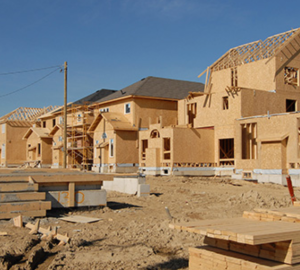Deciding on the type of property to purchase comes with its own set of considerations, especially in densely populated urban areas where space is at a premium and shared living spaces are more common.
Understanding the distinctions between condos, townhouses, and co-ops is essential for prospective buyers, as each offers unique benefits and limitations based on how you intend to use the property.
Homeowners Associations: A Common Thread
A key feature of owning a townhouse or co-op is the likelihood of being part of a Homeowners Association (HOA), though single-family homes can also fall under an HOA’s purview. HOAs enforce rules and may restrict certain personal property changes. They aim to maintain or increase property values by managing and improving common areas and facilities, funded by membership dues. Co-ops differ slightly, with a board overseeing the building and deciding on residency approvals.
Townhouses: Independence within Community
Townhouses blend the features of detached homes and community living, sharing walls with neighbors but often retaining a sense of individual ownership. Owners might have to adhere to community rules but also face the responsibilities and freedoms of maintaining their property, from daily chores to significant repairs. This balance offers a unique sense of pride and autonomy but can also present challenges and additional work.
Condominiums: The Ease of Ownership and Investment
Condos offer a form of real property ownership within a larger building, governed by a board. This setup allows for relatively straightforward buying and selling processes, akin to traditional home sales. Condos can serve as primary residences or investment properties, with owners having the flexibility to rent them out. This ease of transition appeals to many, making condos a popular choice for both living and investment purposes.
Co-Ops: A Distinctive Approach to Community Living
Co-ops present a unique model, especially prevalent in places like New York City. Instead of owning a specific unit, residents own shares in a cooperative corporation that owns the building, accompanied by a lease that outlines residency terms. Co-op boards scrutinize prospective residents’ financial stability and personal references, maintaining a level of control over the community’s composition. This model can offer value and stability, appealing to those seeking a long-term residence with a vested interest in their neighbors’ quality.
Mortgages and Down Payments: Financing Your Choice
Financing varies across property types. Townhouses, akin to detached homes, allow for diverse mortgage options, including low down payment loans. Condos also utilize traditional mortgages but with additional criteria for the building itself. Co-ops require specialized co-op share loans, often necessitating higher down payments and stricter financial qualifications.
Which is Right for You?
The choice between a condo, townhouse, or co-op depends on your lifestyle, financial situation, and long-term goals. Consider the level of autonomy you desire, your willingness to abide by community rules, and your investment strategy. Whether seeking a primary residence or an investment property, understanding the nuances of each option will guide you to the best decision for your needs.




